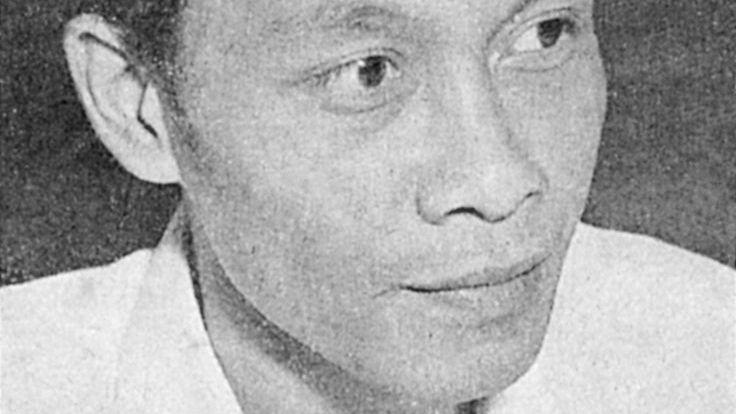Indonesia at the Olympics Over the Years
- Rumaisha Ghina
- Jul 31, 2024
- 3 min read

(Indonesian athletes at 1952 Olympics, image courtesy of Dutch National Archives)
Indonesia participated in the Summer Olympics for the first time in 1952, less than two years after the end of the Indonesian National Revolution. The country sent a small team of three male athletes to compete in weightlifting, high jump, and swimming. Despite their efforts, the team did not win any medals. Thio Ging Hwie placed 8th in men's lightweight weightlifting, Maram Sudarmodjo finished 20th in men's high jump, and Habib Suharko did not advance past the heats in the men's 200 m breaststroke.
The number of athletes has only increased in the following years, with Indonesia being absent only in 1964 and 1980 due to conflicts related to political issues and boycotts.
In 1964, Indonesia was heavily involved in organizing GANEFO (Games of the New Emerging Forces), an alternative to the Olympics initiated by Indonesian President Soekarno. GANEFO aimed to provide a platform for countries not aligned with the Western or Soviet blocs during the Cold War. Additionally, Indonesia was suspended by the International Olympic Committee (IOC) due to its exclusion of athletes from Taiwan and Israel at the 1962 Asian Games in Jakarta. This suspension prevented Indonesia from participating in the 1964 Tokyo Olympics.
As a form of protest against the Soviet Union's invasion of Afghanistan in December 1979, Indonesia joined the boycott led by the United States against the Moscow Olympics in 1980. By not participating in the Moscow Olympics, Indonesia stood in solidarity with many other countries protesting Soviet actions. In the years between these absences at the Tokyo and the Moscow Olympics, Indonesia continued to send a small group of athletes, ranging from 6 to 7 participants.
Indonesia has been present in all subsequent Olympics. The breakthrough occurred at the 1988 Seoul Olympics, where Indonesia won its first podium finish, bringing home a silver medal in archery achieved by athletes Lilies Handayani, Nurfitriyana Saiman, and Kusuma Wardhani. This win motivated the country to aim for further success.

(Susi Susanti, image courtesy of Badminton World Federation)
Following the first-ever podium victory in 1988, Indonesia continued to thrive when badminton debuted as a full-medal Olympic sport in 1992. Susi Susanti brought home the country’s first gold medal in women’s singles. Alan Budikusuma, Susanti’s now husband, also won a gold medal in the men’s singles category. In this particular year, Indonesia brought home five medals, all from competing in badminton. Indonesia has continued to excel in badminton, securing medals in all subsequent years except for the London 2012 Olympics, where medals were primarily won in weightlifting.

(Greysia Polii/Apriyani Rahayu, image courtesy of Getty Images/Richard Heathcote)

(Anthony Sinisuka Ginting, image courtesy of ANTARA/Sigid Kurniawan)
The most recent gold medal winners are badminton’s women’s doubles team, Greysia Polii and Apriyani Rahayu, securing Indonesia’s 8th gold medal at the 2020 Tokyo Olympics. Additionally, Anthony Sinisuka Ginting earned a bronze medal in men’s singles badminton. Weightlifting also contributed to Indonesia’s success with a silver medal and two bronze medals.

(Team Indonesia at the Paris 2024 Olympics Opening Ceremony, image courtesy of ANTARA FOTO/ Wahyu Putro)
For the Paris 2024 Olympics, Indonesia is sending a total of 29 athletes competing in 12 different sports, the largest number in 20 years since the 2004 Athens Olympics when Indonesia sent 38 athletes. This year, the Olympics have added four new sports to the long list of pre-existing 28 ‘core’ sports. The new sports include breaking (breakdancing), sport climbing, skateboarding, and surfing. Indonesia has already secured participation in rock climbing, gymnastics, archery, surfing, and shooting. Let’s wish our athletes the best of luck and show them our unwavering support in Paris!


.png)



Watching Indonesia’s journey at the Olympics over the years has been a mix of pride and learning. From badminton legends like Susi Susanti and Taufik Hidayat bringing home gold, to newer athletes showing incredible promise, it’s clear the country has heart and talent. For anyone curious about sports trends or athlete stats, I found 1win Indonesia useful—not for betting, since it's not available for that here—but for reading up on current and past sports events. The layout makes it easy to find updates, and I often check there when I want a snapshot of Indonesia’s performance across different competitions. It’s a nice supplement to official Olympic pages or news outlets if you want something more focused. Especially during global sports…